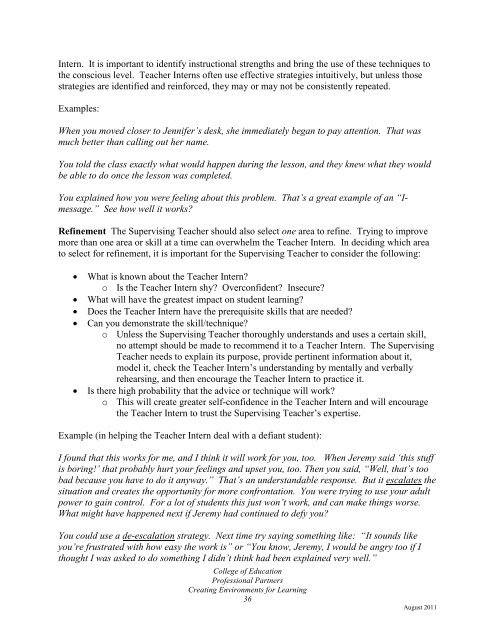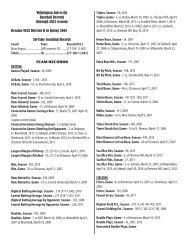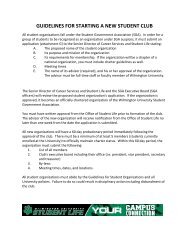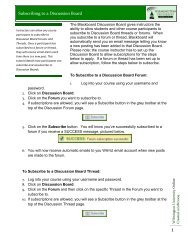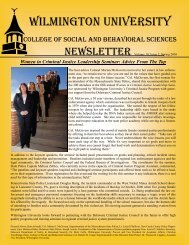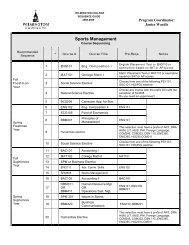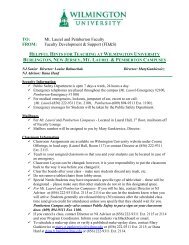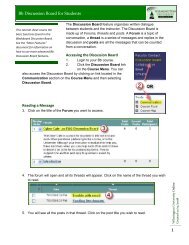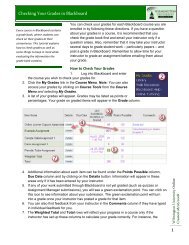handbook for cooperating teachers - Wilmington University
handbook for cooperating teachers - Wilmington University
handbook for cooperating teachers - Wilmington University
You also want an ePaper? Increase the reach of your titles
YUMPU automatically turns print PDFs into web optimized ePapers that Google loves.
Intern. It is important to identify instructional strengths and bring the use of these techniques tothe conscious level. Teacher Interns often use effective strategies intuitively, but unless thosestrategies are identified and rein<strong>for</strong>ced, they may or may not be consistently repeated.Examples:When you moved closer to Jennifer‟s desk, she immediately began to pay attention. That wasmuch better than calling out her name.You told the class exactly what would happen during the lesson, and they knew what they wouldbe able to do once the lesson was completed.You explained how you were feeling about this problem. That‟s a great example of an “Imessage.”See how well it works?Refinement The Supervising Teacher should also select one area to refine. Trying to improvemore than one area or skill at a time can overwhelm the Teacher Intern. In deciding which areato select <strong>for</strong> refinement, it is important <strong>for</strong> the Supervising Teacher to consider the following:What is known about the Teacher Intern?o Is the Teacher Intern shy? Overconfident? Insecure?What will have the greatest impact on student learning?Does the Teacher Intern have the prerequisite skills that are needed?Can you demonstrate the skill/technique?o Unless the Supervising Teacher thoroughly understands and uses a certain skill,no attempt should be made to recommend it to a Teacher Intern. The SupervisingTeacher needs to explain its purpose, provide pertinent in<strong>for</strong>mation about it,model it, check the Teacher Intern’s understanding by mentally and verballyrehearsing, and then encourage the Teacher Intern to practice it.Is there high probability that the advice or technique will work?o This will create greater self-confidence in the Teacher Intern and will encouragethe Teacher Intern to trust the Supervising Teacher’s expertise.Example (in helping the Teacher Intern deal with a defiant student):I found that this works <strong>for</strong> me, and I think it will work <strong>for</strong> you, too. When Jeremy said „this stuffis boring!‟ that probably hurt your feelings and upset you, too. Then you said, “Well, that‟s toobad because you have to do it anyway.” That‟s an understandable response. But it escalates thesituation and creates the opportunity <strong>for</strong> more confrontation. You were trying to use your adultpower to gain control. For a lot of students this just won‟t work, and can make things worse.What might have happened next if Jeremy had continued to defy you?You could use a de-escalation strategy. Next time try saying something like: “It sounds likeyou‟re frustrated with how easy the work is” or “You know, Jeremy, I would be angry too if Ithought I was asked to do something I didn‟t think had been explained very well.”College of EducationProfessional PartnersCreating Environments <strong>for</strong> Learning36August 2011


